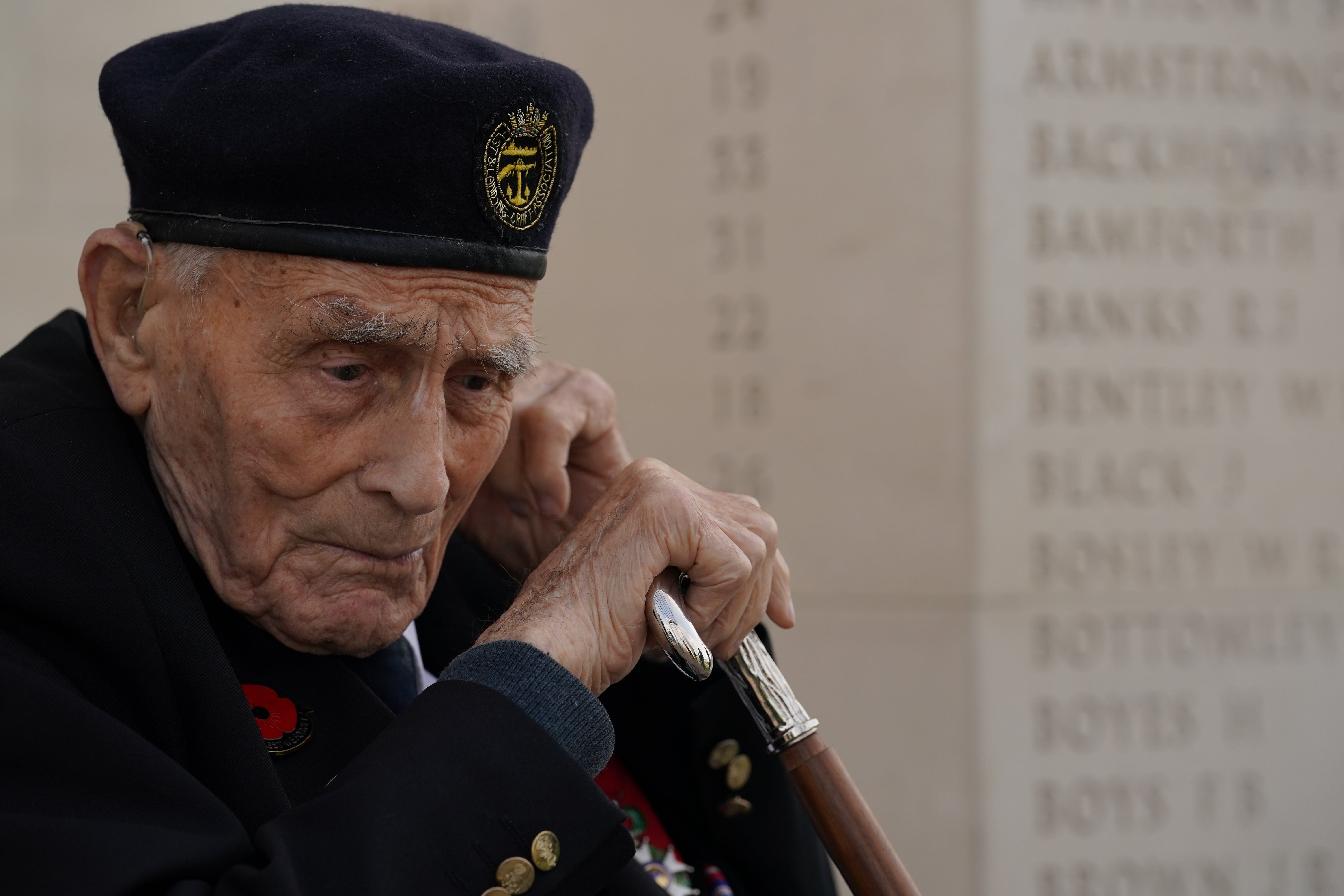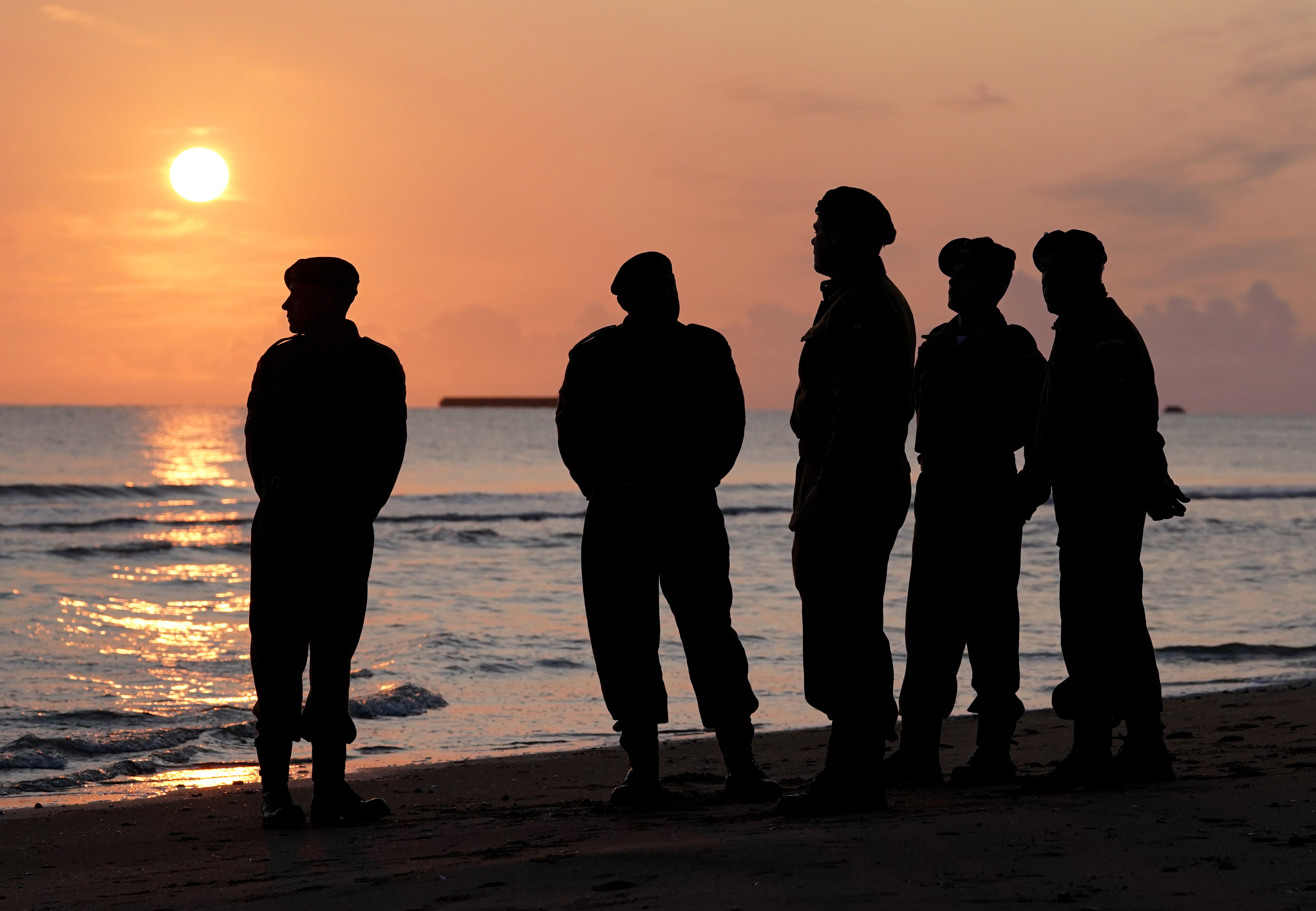Newly unearthed documents have revealed that the D-Day landings received a boost from the import of a “wonder drug” from America.
Despite its discovery in London in 1928 by Sir Alexander Fleming, large-scale production of the antibiotic penicillin had struggled to take hold in Britain.
Attempts to produce substantial quantities of medicine from the bacteria-killing mould had not been achieved by the start of the Second World War.
Then prime minister Sir Winston Churchill became increasingly frustrated that Britain had not been able to produce enough penicillin in the preparations for the Normandy landings in 1944.
Official papers released by the National Archive – containing handwritten notes by Sir Winston – highlight efforts to boost quantities of the antibiotic, with Britain eventually forced to import it from America.
The documents were released ahead of the 81st anniversary of D-Day, the Allied invasion of Normandy on June 6, 1944.
In one report on February 19, after the issue had been raised in the House of Commons, Sir Winston scrawled in red ink on a Ministry of Supply report noting the Americans were producing greater quantities: “I am sorry we can’t produce more.”
On another paper, he complained: “Your report on penicillin showing that we are only to get about one tenth of the expected output this year, is very disappointing.”

Elsewhere in the same file he instructs: “Let me have proposals for a more abundant supply from Great Britain.”
With preparations for D-Day ramped up, efforts to deliver enough American-made penicillin for frontline military personnel soon became a matter of urgency.
Decisions needed to be made on the quantities of antibiotic imported, how much to administer to individual patients, and how to get medical staff trained in time.
Most British doctors did not know how to issue penicillin – until this point, doctors had nothing available to treat infections like pneumonia and many people died of blood poisoning after minor injuries because no drug existed that could cure them.

Early in January 1944, Prof FR Fraser, the Ministry of Health’s adviser on the organisation of wartime hospitals, wrote that 50,000-100,000 wounded could be expected from the Second Front.
He proposed the Emergency Medical Services might need as many as five billion units of penicillin per month for this.
Further documents show discussions on whether the antibiotic should be supplied as calcium or sodium salts, or in tablet form.
Ultimately, it was agreed powdered calcium salts would be issued for superficial wounds and sodium salts for use in deep wounds.
On May 24 1944, less than a fortnight before D-Day, Prof Fraser reported: “Sufficient supplies of penicillin are now available for the treatment of battle casualties in EMS hospitals, but not for ordinary civilian patients.”
Plans were made for casualties from the frontline in France to be brought back to coastal hospitals in Britain for treatment.
A week before D-Day, on May 30 1944, hospitals were instructed to treat battlefield patients en route: “In an endeavour to prevent the development of gas gangrene and sepsis in wounds the War Office have arranged for the treatment of selected cases by penicillin to be commenced as soon after injury as possible.”

Injections of penicillin were to be given to them at intervals of not more than five hours and patients would be wearing a yellow label with the letters “PEN”. The time and size of penicillin doses should be written on it, they were told.
Dr Jessamy Carlson, modern records specialist at the National Archives, said: “File MH 76/184 gives a glimpse into the extraordinary levels of preparation undertaken in advance of the D-Day landings.
“Only six weeks before, penicillin is just reaching our shores in quantities which will allow it to play a major role in improving the outcomes for service personnel wounded in action.”
As Allied forces made inroads into Europe, restrictions on the use of penicillin for civilians began to relax, but only in special cases.
In July 1944, Ronald Christie, professor of medicine, wrote to Prof Fraser to tell him: “The War Office approves of American penicillin being used for medical conditions in service patients and for air raid casualties among civilians.”
On the home front, demand for the new “wonder” drug began to increase, according the National Archives.
It was decided that penicillin for civilians should only be supplied to larger hospitals where the staff had been properly trained to administer it.
Only in 1946 did it become fully available for the general public.







